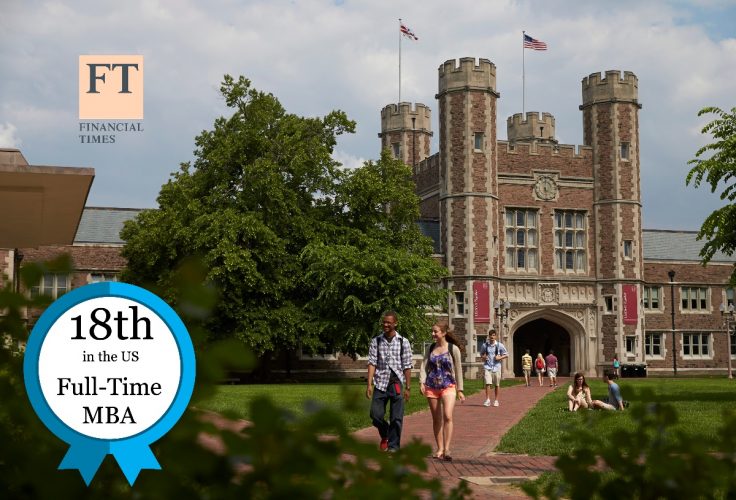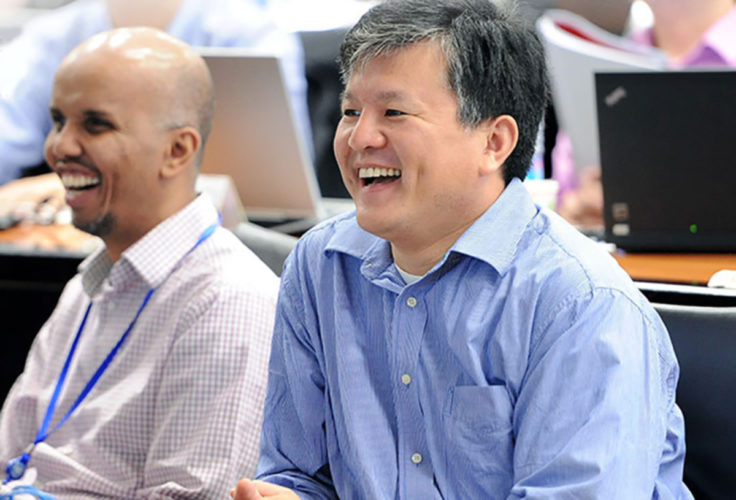Olin placed in the top four globally and top three in the United States in a new Financial Times ranking of the best full-time MBA programs for women, released Sunday night. The WashU MBA program is ranked just behind programs at Stanford and UC Berkeley and just ahead of Harvard’s.

New faculty in 2017. First row, Karam Kang, Xing Huang,
Ashley Hardein; second row, Hannah Perfecto, Zhenyu Liao;
third row, Sydney Scott, Rachel Ruttan.
The release of the ranking was timed for its proximity to this week’s International Women’s Day on Thursday, which Olin will mark by hosting nearly 700 attendees for its special program, “The ‘She’ Suite: Celebrate International Women’s Day with Women in the C-Suite and in Leading Roles.”
“This new ranking gives tremendous affirmation to our efforts to expand women’s voices in Olin’s MBA program,” said Dean Mark Taylor. “It also challenges us to continue the momentum. It’s about fairness, but it’s also about diversity. Diversity drives innovation and appreciating diversity is a core value for Olin.”
Using data gathered from previous rankings, the Financial Times also examined its numbers through several female-centric lenses. For example, Olin ranked first in the US for female percentage increase in salary post MBA and first globally for parity across genders in the starting salary of newly minted MBA graduates. Olin also compared favorably in the percentage of female enrollment, with nearly 40 percent women in the incoming class in 2017—the sixth highest percentage among the top US schools.
“Diversity drives success in business as well as the classroom,” said Olin MBA Shelley Lavender, Boeing senior vice president and head of Boeing’s strike, surveillance and mobility business. “The work Olin is doing to attract women and men from around the globe is ensuring its graduates experience the powerful, profound, and positive impact that diverse teams bring to all aspects of our life.” Lavender also heads Olin’s MBA advisory board.
The news was welcomed by Perri Goldberg, MBA ’18, president of the student-run Olin Women in Business organization, which was named Chapter of the Year at the National Association of Women MBAs Conference in October 2016.
“I am so proud of our school—the admissions effort to attract more female students, our welcoming, collaborative, and inclusive community, the supportive, yet challenging faculty,” said Goldberg. She said the organization has made a priority of collaborating with Olin in creating a welcoming, inclusive environment for both women and men.
“I am confident that this top ranking will attract other strong females and males into the program,” she added, “and I cannot wait to see what our community and OWIB will do in the future.”
Dean Taylor also noted that while the results are encouraging, there are still areas of opportunity. For example, with around a quarter of its faculty female, Olin is about average among the top US schools but is striving to improve: in its most recent round of faculty hiring last year, six of the seven new faculty members were women.








